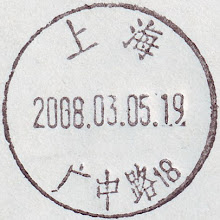 Israel FDC
Israel FDC
Name: The Yiddish Theater 1876, Iasi (Israel - Romania Joint Issue)
Date of Issue: 26 November 2009
Number: 830
This joint Israel - Romania stamp issue commemorates the establishment of the Yiddish Theatre in Iasi, Romania in 1876 and the accomplishments of the founder of Jewish theatre, Abraham Goldfaden.
Abraham Goldfaden (1840 - 1908), a poet and father of the Jewish theater, was born in the town of Starokostiantyniv in the Volyn region, one of the centers of Jewish Enlightenment in southern Russia. His first book of Hebrew poems, "Zizim u-Ferahim" (Buds and Flowers), was published in 1875, after which he went on to publish poems in Yiddish. Goldfaden set some of his poems to folk melodies and they achieved such great popularity that some are even sung to this day, including the most well-known of his songs, "Raisins and Almonds".
Goldfaden arrived in Iasi, Romania in 1876 in order to publish a newspaper representing the Jewish Enlightenment. There he put on the first play improvised in Yiddish, integrating his already well-known songs and featuring two wandering actor-singers. Overnight he became the founder of the modern Jewish theater, a title he justifiably awarded himself. Up to that point, theater productions in the Jewish community were mainly held as part of the Purim holiday festivities (“Purim Spiel”), while plays written by followers of the Enlightenment were meant only to be read. The Orthodox Jewish community rejected the theater institution but Goldfaden was not deterred and dedicated himself to the theater he had founded, turning it into a legitimate part of Jewish culture. His theater merged the folkloristic roots of Jewish culture with the ideas of the Enlightenment and was influenced by the Russian-European melodrama and operetta. His troupe gave rise to many other theater troupes, which frequently made use of his repertoire, including plays such as: "The Witch", "The Two Kuni-Lemls" and "Shmendrik" (The Comical Wedding).
Over the course of thirty years, Goldfaden wrote more than 50 plays, which he directed, set to music and produced, even building and designing the sets and costumes. His productions allowed actors to hone their craft and developed an audience of theater proponents. He travelled throughout Europe, Russia, the Ukraine and America with his troupe. His plays were fraught with scathing criticism of the religious establishment and spoke out against inconsistencies within Jewish society, which was straddling the line between tradition and progress on the eve of the 20th century. His plays were received enthusiastically and he gave the Jewish stage eternal characters such as Bubbeh Yachneh, Miraleh the Orphan, Hotzmich, Shmendrik and Kuni-Leml.
At the height of his activities in Russia, Goldfaden's troupe numbered 40 actors and actresses and he began writing historical melodramas: "Shulamith", "Dr. Almasada", "Judah the Maccabean" and "Bar Kochva". Always attentive to his audience and to the goings on around him, Goldfaden wrote "Bar Kochva" in order to awaken awareness and national pride within his audience in reaction to the wave of pogroms that washed over Russia.
In 1883, the troupe disbanded after the Czar issued a proclamation banning the production of Yiddish plays within the realms of the Russian empire. Goldfaden continued to wander through Europe and America on his own. Upon arriving in America in 1887, he discovered that his former actors were performing his old repertoire but his theatrical endeavors in the New World were rejected. Although unable to rekindle his days of glory in the theater, he continued to pen new plays, such as "Lo Tachmod" (The Tenth Commandment or Though Shalt Not Covet), "Days of the Messiah?!" and "The Binding of Isaac", which he produced them with various troupes in many places. He wrote and produced his Hebrew-language play "David in War" featuring a group of youths in a Zionist club in New York. Thus he also considered himself to be the father of the Hebrew Theatre.
Abraham Goldfaden died on January 9, 1908 and tens of thousands of mourners accompanied him on his final journey. The original theater he created filled the community's needs and impacted the artistic development of the Jewish and Hebrew theaters as they came into being. Many of his plays continue to be produced in Israel and in Jewish theaters throughout the world.
Description of the Stamp & the First Day Cover
The stamp features an adapted illustration, based on the original poster for the play Two Kuni-Lemls.
The First Day Cover features two quotes from the play Two Kuni-Lemls, both in the original Yiddish and translated into Hebrew.
Monday, December 21, 2009
Israel Theater FDC
Posted by Fan Ming at 12/21/2009 07:53:00 PM
![]() Label:
Israel,
Joint Issue
Label:
Israel,
Joint Issue
Subscribe to:
Post Comments (Atom)






No comments:
Post a Comment